On the Boycott, Divestment and Sanctions (BDS) campaign
Why is it important to understand and oppose the BDS campaign?
Share
As Israel Apartheid Weeks begin on campuses around the world, Rabbi Sacks has released a new whiteboard animation to explain what lies beneath the Boycott, Divestment and Sanctions (BDS) campaign, why it is so dangerous, and why Jews, humanitarians of all faiths and of none, and all those who value a free society, must stand up against it.
Subtitles are available in Arabic, Chinese, Dutch, English, French, German, Hebrew, Italian, Portuguese, Russian and Spanish.
The Boycott, Divestment and Sanctions campaign against Israel is dangerously wrong, because beneath the surface it is an attempt to delegitimise Israel as a prelude to its elimination.
No Jew, and no humanitarian can stand by and see that happen.
Besides which, it will harm the very people it seeks to help, prolong the situation it seeks to end, and lead to wrongs in the name of rights.
I support the right of the Palestinians to a state of their own, and the right of Palestinian children to a future of dignity and hope.
But the BDS campaign will achieve neither of these things. Let me explain why.
Human rights are the rights we have because we are human. They are universal or they are nothing.
So the test of any movement in support of human rights is: is it really universal, or is it a matter of rights for some but not for others.
If the BDS movement were really about human rights, its supporters would be protesting the breakdown of human rights in countries across the Middle East, in Africa and around the world. They would be demonstrating against the barbarism of ISIS. They would be campaigning against the abuse of human rights by Hamas in Gaza.
Any nation can be held to account at the bar of human rights, but in a world awash with human rights abuses, to focus on one nation only – and that, the only effective democracy in the Middle East – looks less like a campaign for human rights than a campaign against Israel’s very right to be.
It is in fact the latest chapter in a sustained attempt to do just that.
In 1948, 1967 and 1973, Israel’s enemies tried to destroy it militarily, by war, and they failed.
Beginning in 1973 with the Arab boycott, they tried to destroy it economically, and they failed.
In 1975 with the notorious “Zionism is racism” motion in the United Nations, they tried to destroy it politically, and they failed.
From 1994 to 2002, by a campaign of suicide bombings, they tried to destroy it psychologically, and they failed.
Now, through the BDS campaign, they are trying to delegitimate it morally. This too will fail, but it is serious.
It is based on a vicious lie: that Israel is a colonial presence in the Middle East. It is nothing of the kind.
The Jewish connection with the land of Israel goes back roughly twice as long as the history of Christianity, three times as long as the history of Islam.
Jews are the only nation in history ever to have established a nation state in the land, and the only nation never to have lacked a presence there.
And because Israel is the world's only Jewish state, and the only state whose very right to exist has been constantly challenged, the campaign against it is recognisably the latest mutation of the world’s oldest hate: antisemitism.
BDS will fail because when people seek to end a conflict by focusing on only one party to that conflict, they don’t end it. They perpetuate it.
There could have been a Palestinian state in 1947 with the United Nations vote for partition; in 1948 when the modern state of Israel was born; in 1967 after the Six Day War; in 2000 at Camp David; 2001 at Taba; in 2007 under Ehud Olmert; and since.
In each case Israel said yes, offering land in exchange for peace, but the Palestinian leadership said no.
And even when Israel unilaterally withdrew from territory such as South Lebanon in 2000 and the Gaza Strip in 2005, the space was immediately filled by terrorist organisations – Hezbollah and Hamas – dedicated to Israel’s destruction.
Simply put, the BDS campaign will delay, defer, and endanger the very chance of a Palestinian state, prolonging the suffering it seeks to end.
This is because it misrepresents the conflict as a zero-sum game: either Israel wins and the Palestinians lose, or the Palestinians win and Israel loses.
But the conflict is not a zero-sum game. From war and violence, both sides lose. From peace and security, both sides win.
If we really care about the rights of Palestinians, then we must care about those of Israelis likewise. Rights are universal or they are nothing, and if they are merely a concealed form of hate, then they become not rights but wrongs.
Any movement for human rights, or peace, or justice, must be fair to all sides; recognise the rights of all sides; seek the agreement of all sides; and win the trust of all sides.
The BDS campaign, which seeks to intimidate and silence the other side, fails these tests; which is why all who care for our shared humanity must find another and better way.
This video is dedicated in memory of Stuart Young, a great Jew and Zionist.
More Animations
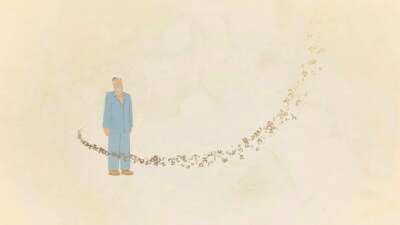
The Bridge Across Time (Animation)
Watch Rabbi Sacks’ message on Torah, and how it lives in every generation

The Everlasting Flame (Yom Ha'atzmaut animation)
Watch Rabbi Sacks’ message on the true courage of Israel
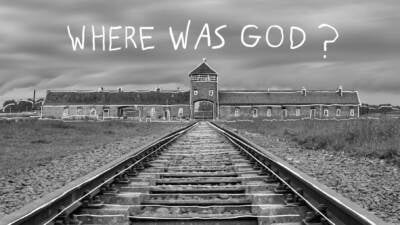
Faith After the Holocaust
Rabbi Sacks responds to the devastation of the Holocaust
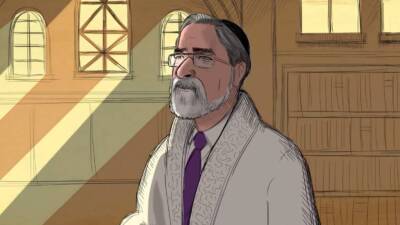
Time (animated video)
Watch Rabbi Sacks’ view on the Jewish way to understand time.
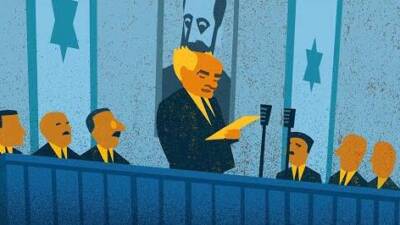
Israel: Home of Hope (animated video)
Rabbi Sacks on the connection between Ezekiel’s Vision of the Valley of Dry Bones and the creation of the modern State of Israel.
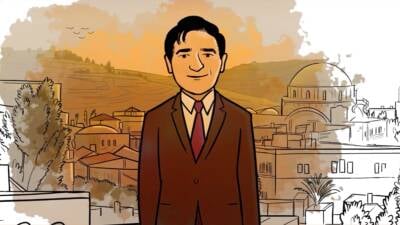
Connecting to God (animated video)
With audio recorded by Rabbi Sacks in 2010, here is a new animated video of the three key ways we can each connect to God.
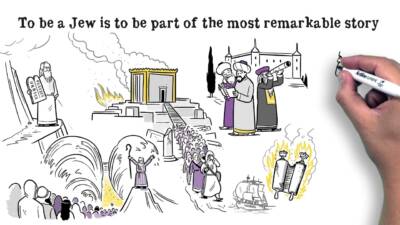
Being Jewish (animated video)
An animation on understanding our identity and our Jewish heritage.

Morality (animated video)
“We need to restore that sense of collective responsibility…”
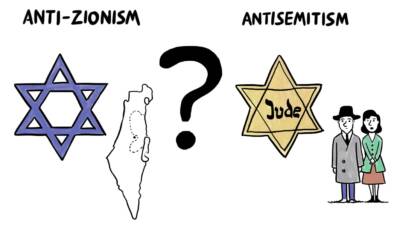
The Connection between Judaism and Israel
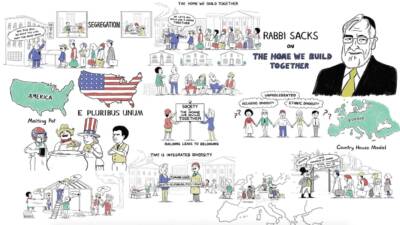
The Home We Build Together (animated video)
How can we create a healthy, sustainable society? Does building lead to belonging?

Rabbi Sacks on 'The Great Partnership'
Do Religion and Science Always Contradict Each Other?
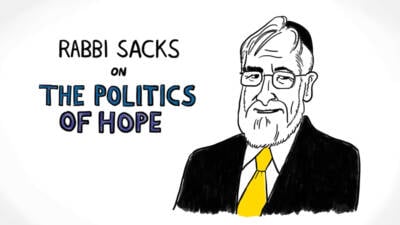
Rabbi Sacks on 'The Politics of Hope'
Can we create a new kind of politics?
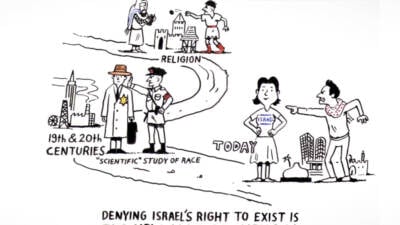
The Mutation of Antisemitism
What is antisemitism, and how has it changed over the centuries?
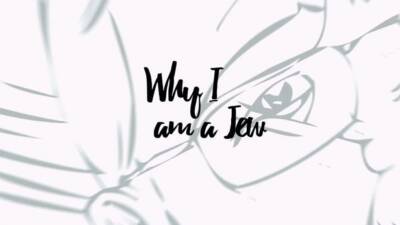
Why I am a Jew
An animated video on Jewish identity and finding your Jewish purpose
